TYPES OF DIABETES
There are three main forms of diabetes: type 1, type 2, and gestational diabetes.
a) Type 1 diabetes is believed to be caused by an autoimmune reaction (the body attacks itself by mistake). This response stops your body from making insulin. Roughly 5-10% of people with diabetes have type 1. It’s usually detected in kids, and young people. There is no known cure to prevent type 1 diabetes.
b) Type 2 diabetes can be a lifelong medical condition that causes dangerously high blood glucose (hyperglycemia). People with this condition have difficulty converting sugar (glucose) into energy. Symptoms include excessive thirst, frequent urination, and extreme fatigue. Nerve damage, skin disorders, sexual dysfunction, renal failure, and eye problems are among the complications that may develop as the disease progresses. It occurs when insulin, a hormone that is integral to bringing glucose into the cells, is less effective . A simple blood test may diagnose type 2 diabetes. It can be treated with a medication or lifestyle changes, such as diet and exercise.
c) Gestational diabetes develops during pregnancy in women who previously did not have diabetes. The baby could also be at an increased risk for health problems, and the risk for type 2 diabetes down the road.
There is a stage before diabetes, known as prediabetes. With prediabetes, blood sugar levels are more elevated than normal but not high enough for a type 2 diabetes medical diagnosis. Prediabetes raises your danger of type 2 diabetes, heart disease, and stroke.
Frequently asked questions
Diabetes is a set of diseases that result in an excessive level of sugar in the blood (high blood glucose). There are three forms of diabetes: Type1, Type2, and gestational diabetes (during pregnancy). Type 2 diabetes is the most common form of diabetes.
Two interrelated issues can trigger diabetes type 2. Cells in muscle, fat, and the liver become resistant to insulin. Since these cells don’t interact with insulin like they normally should, they do not consume adequate sugar. The pancreas cannot produce more insulin to manage blood sugar levels. This cycle continues over time, resulting in diabetes type 2.
Although there’s no treatment for type 2 diabetes, studies show some people can prevent and even reverse it. Through lifestyle modifications such as diet changes and weight reduction, you might have the ability to reach and hold typical blood glucose levels without medication.
Sugar doesn’t trigger type 2 diabetes directly, but you are most likely to get it if you are overweight. You gain more weight when you take in more calories than your body requires, and sugary foods and beverages are rich in calories.
Sweeteners, sugary drinks, trans fats, fried foods, processed foods, and dairy-free coffee creamers can increase risk of diabetes.
Type 2 diabetes is largely preventable by modifying your lifestyle. Adopt a healthy diet, exercise, lose excess weight, get 8 hours of sleep, reduce stress, and quit smoking.
Key Terms
- A1C Test
- Insulin
- Blood Glucose
The A1C test is a common blood test used to diagnose type 1 and type 2 diabetes. It can identify prediabetes, which raises your risk for diabetes. It can be used to diagnose diabetes. A normal A1C level is less than 5.7%, a level of 5.7-6.4% indicates prediabetes, and a level of 6.5% or higher indicates diabetes. Within the 5.7%-6.4% prediabetes range, the higher your A1C, the greater your risk is for developing type 2 diabetes.
Insulin is a hormone helps blood sugar enter the body's cells so it can be used for energy. Insulin lowers the level of glucose in the blood. Insulin also signals the liver to store blood sugar for later use. Blood sugar enters cells, and levels in the bloodstream decrease, signaling insulin to decrease too. It's made by the beta cells of the pancreas and released into the bloodstream when the glucose level goes up, such as after eating.
Blood glucose, or blood sugar is the main sugar found in your blood and the body’s main source of energy. It comes from the food you eat, and is your body's main source of energy. Your blood carries glucose to all of your body's cells to use for energy.
Diabetes is a disease in which your blood sugar levels are too high. Over time, having too much glucose in your blood can cause serious problems such as heart disease, stroke, and nerve problems among many other complications.
The Latest in Diabetes
- All
- Diabetes
- Gut Health
- Heart Health

Waking Up Bloated In The Morning
Waking up bloated is a common and unpleasant experience that many individuals Read More

How to Improve Cardiovascular Health
Improving cardiovascular health is essential to living a healthy life. The cardiovascular Read More

Celiac disease foods to avoid
If you have celiac disease, going gluten free is a must. To Read More

When is the best time to take probiotics?
Probiotics contain live microorganisms that can support and enhance your healthy gut Read More

Foods that lower blood sugar & A1C
If you have diabetes, it can be daunting to manage your diet Read More

Mango glycemic index & health benefits
The mango glycemic index is 51, which classifies it as a low Read More

How to get rid of gas fast
Trapped gas can be acutely painful. It's usually not serious, but may Read More

Foods That Contain Natural Digestive Enzymes
Good digestive health is an important safeguard against many ailments. One effective Read More

Step Challenge Health Benefits
Diana Bone MSN, FNP-C Millions of Americans are working from home, and Read More

Standing vs sitting calories
Standing vs sitting calories is a step in the right direction. Standing Read More

Diabetic diet for seniors
Managing diabetes as you age presents unique challenges. Understand senior nutrition and Read More

Are grapes good for diabetics?
Grapes contain a low GI value in the range between 43 to Read More

How to improve gut health naturally
An unhealthy gut may affect your immune system, contribute to disease, and Read More

How To Get Rid Of Bloating Fast?
Bloating is common and can be very uncomfortable. A bloated stomach usually Read More

What foods cause gas & bloating?
Some foods cause gas and bloating more than others. Excessive gas and Read More

Keto diet for diabetics benefits & side effects
Diabetes type 2 is a condition that can influence blood glucose control. Read More
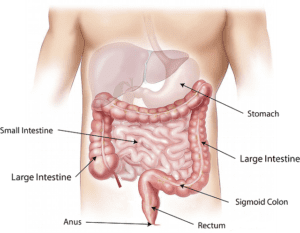
What Are Digestive Enzymes?
What are digestive enzymes? If you’re experiencing indigestion issues, you might have Read More

Ayurveda For Gas & Bloating
According to Ayurveda, good digestion is the main indicator of good health Read More

What is bloating?
Bloating occurs in your abdomen. It happens when your GI tract fills Read More

What is type 1 Diabetes?
What is type 1 diabetes? Type 1 diabetes is a serious condition Read More
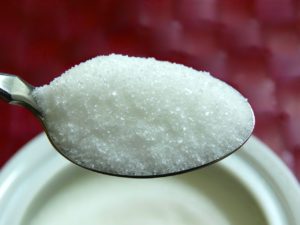
Sugar substitutes and artificial sweeteners
Nonnutritive sweeteners (NNS) have become an important part of everyday life and Read More

2000 calorie diet
Men and women with healthy BMI, in the age group of 18-50 Read More

Why does your stomach growl?
Stomach growling is normal and often happens after eating a meal. However, Read More
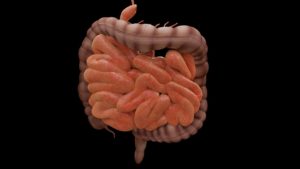
SIBO diet foods to eat & avoid
Small intestinal bacterial overgrowth, or SIBO, occurs when bacteria that usually grows Read More

Good Gut Health Foods Diet
Gut-healthy foods can make an impact on your health in general. Find Read More

Homeopathic remedies for acid reflux & heartburn
Homeopathic medicine Natrum Phosphoricum can be an effective solution to treat the Read More

Homeopathy as Holistic Care for gastroenteritis disorders
Homeopath explains how Gastroenteritis can be effectively treated with the help of Read More

Yoga For Ulcerative Colitis
Research shows that yoga can help improve the quality of life for Read More

Yoga For GERD
Yoga can heal GERD by lowering the stress levels and improving the Read More

Yoga Treatment For Pancreatitis Patients
Research shows Yoga can help reduce pain & need for pain medications, Read More
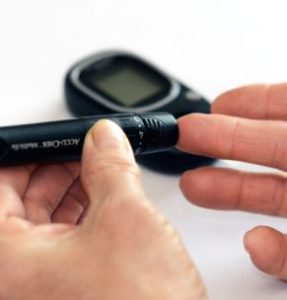
Yoga For Diabetes Type 2
Yoga can help prevent & treat type 2 diabetes from developing by Read More
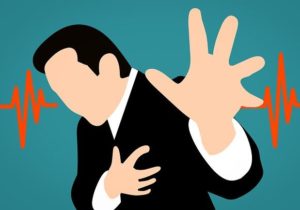
Yoga For Heart Disease Prevention
Research shows yoga can prevent or reverse heart disease. You can reduce Read More

Yoga Poses For Constipation, Gas & Bloating Relief
Yoga benefits constipation, gas & bloating by lowering your stress & giving Read More
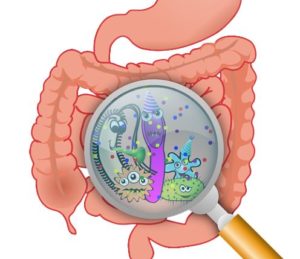
Yoga For Digestion & Gut Health
Yoga has numerous health benefits including digestion. Yoga asanas help with constipation, Read More
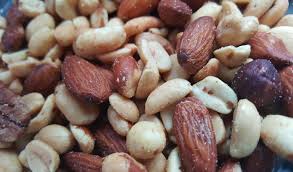
Why Magnesium is important for your diet
Learn why Magnesium is important for your diet from a dietitian. Magnesium Read More

What to drink for acid reflux & heartburn relief
Some drinks can soothe acid reflux & heartburn in the stomach by Read More

Why Am I Craving Salt, What It Means
What does it mean to crave salt? Salt cravings can be due Read More

Why am I so bloated & gassy
Finding the root cause is key in fixing bloating & gas. Eating Read More

How To Stop Farting
Can’t stop farting? How to stop farting? Certain foods, carbonated drinks & Read More

Why Does My Body Feel Heavy?
Stress, anxiety, poor sleep, food intolerances & medical conditions can cause fatigue. Read More




